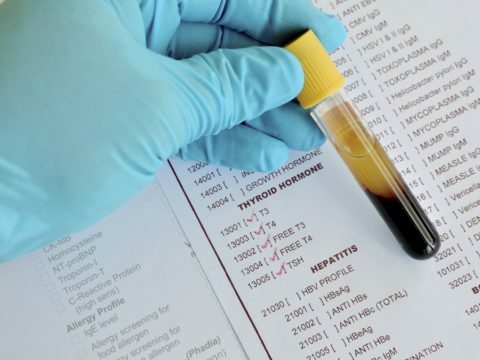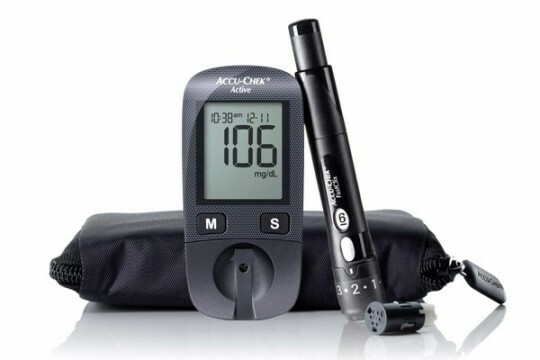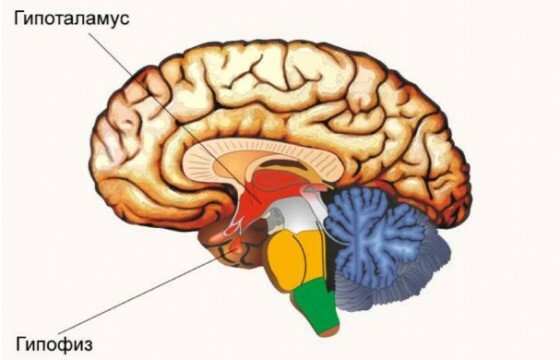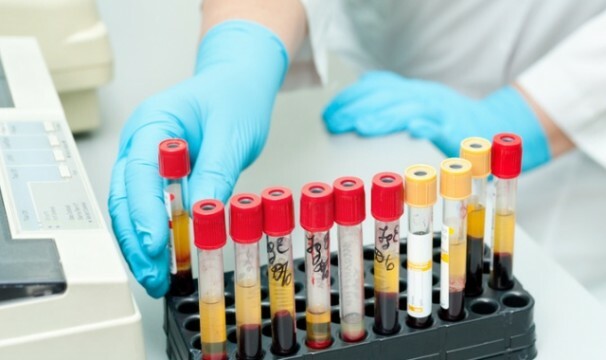Functions of organs and various systems of the human body depends on the functioning of the thyroid gland. Very many diseases are "indispensable" to her pathology. To determine how this vital organ works, a blood test is administered for the presence of thyroid-stimulating hormone, triiodothyronine and thyroxine.
TTG, produced by the pituitary gland( the gland in the lower part of the brain), performs a supporting function, controlling the amount of T3 and T4, affecting the production of energy in the human body. As soon as the content of hormones T3 and T4 in the blood is below normal, the synthesis of TSH, depending on the hormone secreted by the hypothalamus, increases. If the function of the pituitary gland is disturbed, the concentration of the thyroid-stimulating hormone changes. Disease of the hypothalamus lowers or increases the level of thyreoliberin( regulator of secretion of the thyroid-stimulating hormone).If his level is elevated, hyperthyroidism develops, since insufficient or excessive amounts of hormones are supplied to the blood for normal operation.
Hyperthyroidism( thyrotoxicosis) or clinical syndrome is a consequence of an increase in blood hormones, actively produced by the thyroid gland, resulting in accelerated metabolic processes. If the level of hormones is below normal, there is a slowdown in metabolic processes, forming a disease of hypothyroidism.
Analysis of

The thyroid gland is the most sensitive human organ that undergoes negative influence, which affects its functioning. Therefore, the sooner the most insignificant deviations are determined, the better. Positive attitude, excellent state of health, desire to live an active life, will guarantee its normal functioning.
If suspicion of abnormalities in the thyroid gland is assigned to the analysis of all three hormones - TTG, T4 and T3.For people who are already being treated, these tests are mandatory, since they determine the state of the disease at a certain stage of its development.
Certain symptoms may serve as the basis for the analysis. For example, when the main hormone is raised, a person feels weak, irritated, nausea or even vomiting may appear, it may affect the skin on the outside - it becomes pale and has a not healthy appearance. Increases weight that can not be reset, constipation, drowsiness or lack of sleep, fatigue, body temperature may drop to 35 degrees, and during pregnancy there is a noticeable thickening of the neck.
When lowering the level of the main TSH, there is a feeling of constant hunger, diarrhea, trembling in the body, the temperature sometimes rises, the head hurts. A competent endocrinologist will help to establish an accurate diagnosis and prescribe a treatment. Self-treatment is dangerous.

The category of people over the age of 40 also requires a survey. This is the age in which health problems can not immediately be defined as insidious diseases of the thyroid gland do not make themselves felt from the very beginning of their development. To maintain health, it is desirable to regularly take a blood test.
Diseases
The indicator of the content of this hormone is dependent on age.
If the TSH content is lowered, one should look for the "root of evil" in the presence of such diseases as:
- diffuse toxic goiter or thyrotoxic adenoma( Plummer's disease),
- autoimmune thyroiditis,
- is possibly a mental illness or extremely exhausted organism that gives such an indicator.
Elevated level is observed with:
Symptoms of deviations

Finding the disease with the help of thyroid-stimulating hormone analysis is not enough to establish an exact diagnosis, because it varies depending on the processes occurring in the body of any person, therefore an analysis of the other two derivatives - thyroxine and triiodothyronine - is prescribed.
Normally triiodothyronine in the blood is contained in the amount of 1.08-3.14 nmol / l. If the indicator is raised, then you should think about a possible violation in the thyroid gland. At the same time, Pendrars syndrome, thyroid adenoma is possible, nephrotic syndrome, hyperthyroidism, etc., may begin to develop. Low hormone levels cause suspicion of developing kidney failure or severe deficiency of iodine, hypothyroidism and so on.
The norm of thyroxin concentration in a woman is 71-142 nmol / l, for a man - 59-135 nmol / l. If this indicator is increased, it may be a case of pathology. At the same time, the list of suspected diseases includes
- nephrotic syndrome,
- thyrotoxic adenoma,
- , the level of thyroxine-binding globulin may be reduced,
- may be a chronic development of diseases of the liver or thyroid.
Deviation

Based on the results of the tests, the physician can draw the following conclusions:
- With the norm of T4 and T3, the elevated concentration of TSH indicates the initial stage of hypothyroidism.
- At a normal level of T4 and normal or decreased T3, an increase in the limiting concentration of TSH, indicative of hypothyroidism, is observed.
- A low percentage of TSH at a normal level of the other two hormones causes suspicion of the initial stage of hyperthyroidism.
- Low TSH in the blood with normal or increased content of two other vital hormones, therefore, there is a sign of hyperthyroidism.
- With normal or simultaneous decrease in T4 and T3 in the blood, TSH may be normal, which confirms the presence of secondary hypothyroidism.
- With normal TSH, simultaneous increase in the other two substances, resistance( resistance) to thyroid hormones takes place.
Normally contained in the body: thyroid-stimulating hormone - 0.4-4.0 mU / l, free triiodothyronine - 2,6-5,7 nmol / l, thyroxine free - 9,0-22,0 nmol / l.
Features of hormonal background in pregnant women
It should be remembered that pregnant women always have a decrease in thyroid-stimulating hormone, since the baby needs iodine-containing substances until his thyroid gland is formed. In this case, the thyroid gland of the mother increases the synthesis of these hormones by reducing the pituitary production of thyrotropin. However, the level of the basic hormone close to zero, should alert. This can mean a malfunction in the body, but the symptoms of these malfunctions are similar to the symptoms of toxicosis caused by pregnancy. Therefore, it is necessary to check the presence or absence of pathology with the help of analyzes in order to detect it in time.
The disturbed hormonal background leads to dangerous consequences provoking serious diseases, therefore at the first signs of violations it is necessary to consult a specialist for a thorough examination. A blood test for the content of thyroxine should be done once every six months.



